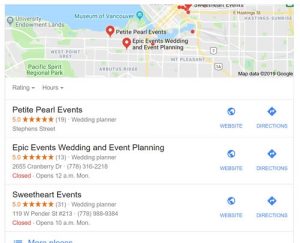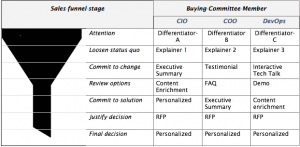— September 13, 2018

StartupStockPhotos / Pixabay
There’s nothing quite like starting your own business. From building a dynamic team of talented employees to solving a client’s most difficult problems, it requires every last ounce of your ingenuity and dedication. But that’s what makes every new contract and satisfied customer so significant – a straight line can be drawn from your hard work to your company’s success.
I founded my own company four years ago after working as the chief marketing officer at the New York Stock Exchange, a vice president at Goldman Sachs, a trader at Morgan Stanley, and a marketing/communications professional at Omnicom. All of these experiences culminated in my decision to start a B2B marketing firm that specializes in personalized services and a tight focus on securing specific business outcomes for our clients.
Nothing could have better prepared me for life as a business owner than my days in the C-suite and my experience leading teams at a few of the largest companies in the world. Here’s what the journey has taught me.
#1 – Make business outcomes a top priority
In today’s data-driven environment, it’s vital to be a business-minded marketer. For example, when I worked on the client side of marketing at NYSE Euronext, I was struck by the fact that many of the agencies we worked with didn’t understand what outcomes we were trying to achieve. Furthermore, they had no way of measuring or benchmarking activities.
Every firm wants to do dynamic and creative work, but they should always recognize that it’s a means to an end: Increasing a brand’s exposure, loyalty, and ultimately, profit. That’s why firms should ask what a client’s desired outcomes are from the very beginning – from the number of customers reached and retained to general brand awareness to new revenue generated. This increases trust and accountability because the work is always measured alongside a series of specific objectives.
After years of experience creating and coordinating marketing strategies, I was acutely aware of the need for better alignment between agencies and their clients. This applies to everything from finding people with the right expertise and passion for a particular project to having candid discussions about business outcomes and strategies for pursuing them. Of course, there’s plenty of overlap between the two.
If your company is rooted in a business mindset, you will always spend your clients’ money as if it’s your own. For example, if you’re working with a client who has just raised $ 100M in capital, it’s your responsibility to help them spend it in an intelligent way that moves them closer to the goals they’ve outlined. Whether you’re working with a major brand that needs a full marketing agency or a small tech startup that wants strategic guidance on a more limited scale, the goals are always the same: increase exposure and maximize profit. Marketers should never lose sight of that fact.
#2 – Turn your business into an “open kitchen”
If there’s one thing I learned during my years spent in leadership roles, it’s how to manage complexity. From analyzing markets and overseeing acquisitions to engaging with clients and handling multiple business lines simultaneously, the ability to multitask and bring disparate elements of a business together has always been paramount in my career. No problem is ever the same; thus, you can’t expect to solve each problem with the same toolkit.
In order to manage the complexities within my own business, as well as the clients we serve, I’ve established an “open kitchen” model – a term that was coined by the former CMO of Mondelez (and current chief transformation officer at MediaLink), Dana Anderson.
An open kitchen is a culture where a diverse group of people gather around the table and feel empowered to share ideas freely. Note the word “diverse.” This doesn’t just mean employees and contractors who have different skill sets – it means people who have a wide range of interests and passions.
For example, one of the marketing professionals on our team is a behavioral scientist and linguist who can help clients address communication problems they didn’t even know existed. When people like her are embedded in a company’s culture, they don’t just bring a fresh pair of eyes and a unique set of analytical tools to the table – they bring a genuine fascination with their area of expertise.
By embracing many different voices and building teams from the ground up for each client, you’ll ensure that the right people are always working on the right projects.
#3 – Develop and nurture meaningful relationships
The relationships I’ve developed over the last 20 years are the thing that matters most in the end. No matter how high you go on the corporate ladder, nurturing deep connections rooted in similar interests is one of the keys to success.
Developing an environment where relationships are the goal, not simply a side effect, is central to building a sustainable business. When clients and internal teams feel “safe,” it creates a culture where open dialogue, new ideas, and collaboration happen naturally.
While this may seem counterintuitive to the highly competitive and winner-takes-all business mindset of the corporate world, I’ve learned that openness on all levels is a recipe for success. I don’t have strictly transactional relationships with my clients, freelancers, and employees; rather, I enjoy facilitating authentic connections and watching relationships grow. Generally speaking, this mindset leads to more collaboration, increased creativity, and ultimately a better experience for everyone involved. After all, who wants to feel like just another number?
There’s a whole lot to love about starting your own business: from the autonomy to the incomparable sense of satisfaction you get from building something of your own. But my favorite part is the opportunity to bring exceptional people together and help them accomplish their goals. I can’t think of anything more valuable and rewarding than that.
Business & Finance Articles on Business 2 Community
(62)
Report Post







